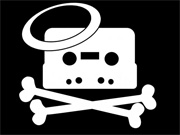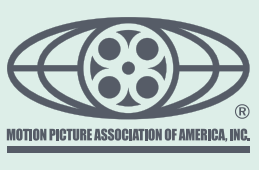 Almost exactly one year ago, Universal Music, Sony Music, Warner Music, Nordisk Film and the Swedish Film Industry teamed up against Swedish ISP Bredbandsbolaget (Broadband Company).
Almost exactly one year ago, Universal Music, Sony Music, Warner Music, Nordisk Film and the Swedish Film Industry teamed up against Swedish ISP Bredbandsbolaget (Broadband Company).
In a lawsuit filed at the Stockholm District Court, the entertainment industry plaintiffs argued that Bredbandsbolaget should be held liable for Internet piracy carried out by its own subscribers. The companies argued that if the ISP wants avoid liability it should block its customers from accessing The Pirate Bay and streaming portal Swefilmer.
Telenor subsidiary Bredbandsbolaget (Broadband Company) has fought the action every step of the way and will find out at the end of November whether those efforts have paid off.
Should it prevail the decision will be a historic one – no other ISP in Europe (complex Netherlands’ case aside) has managed to avoid blocking The Pirate Bay following a legal battle. If the ISP loses (and the odds suggest that it will) the provider will be required to censor the site, something it is desperate to avoid.
In a joint statement this week Patrik Hofbauer, CEO of Telenor and Bredbandsbolaget, and Anna Bystrom, company legal counsel, warned that an adverse ruling could put the model of a free and open Internet at risk.
“When a judgment becomes precedent a trial is about so much more than an Internet service provider and two controversial websites,” the executives begin.
“If the media companies are given the right it will lead to absurd consequences and Internet subscribers will ultimately end up using a severely censored Internet.”
Hofbauer and Bystrom highlight the fact that should the case go the plaintiffs’ way, Bredbandsbolaget and other Internet providers will be regarded as accomplices to infringement committed on sites such as Swefilmer and The Pirate Bay. However, the implications stretch far beyond those two domains.
“A conviction that makes us criminals because we do not block these sites is very dangerous and opens a door must remain closed,” they explain.
“Moving forward, will ISPs then be forced to block social media if we are deemed to contribute to copyright infringement, threats and defamation that may occur there?”
Indeed, copyright is the tip of the iceberg. Could ISPs’ liability stretch further still, to controversial sites such as Wikileaks for example?
“Will sites where whistle-blowers can reach out with secret classified material also need to be blocked? If so, Sweden would then be subjected to a harsh level of censorship unique in the EU,” Hofbauer and Bystrom warn.
While the copyright holders in the legal action are clear on their goals, it’s clear that Bredbandsbolaget is concerned that this case represents the thin end of a wedge, one that starts with copyright but has the potential to expand into unforeseen areas. Once the genie is out of the bottle, the company argues, the threat to the open Internet could be great.
Bredbandsbolaget says the legal and ethical choices it is confronted with are not always easy ones and it sometimes finds itself in the middle of contradictory demands from legislators on one side and stakeholders on the other. But on this issue, initially involving The Pirate Bay but with the potential to spread much further, the ISP’s position has been easy.
“Our role in society should be about making information available and we can not risk engaging in censorship,” the ISP explains.
“When we faced pressure from individual players in this case, we put our values to the test. We are against piracy, but the idea that under threat of punishment ISPs must make assessments of the sites that Swedish people visit is absurd.”
In conclusion and while welcoming a positive outcome to the case, the executives say that if they’re forced to bend to the whims of outside influences, people may have to kiss goodbye to a free and open Internet.
“The day when we and other operators must be guided by private interests, that may represent the beginning of the end for what we in Sweden know as the open Internet. With that said, we welcome a decision that will hopefully strengthen our conviction,” Hofbauer and Bystrom conclude.
Whichever way it goes, there’s only two weeks left to find out.
Source: TorrentFreak, for the latest info on copyright, file-sharing, torrent sites and ANONYMOUS VPN services.
 Between April 2012 and May 2015, a handful of international rightsholder groups went to the UK High Court to obtain blocking injunctions against some of the world’s most popular ‘pirate’ sites.
Between April 2012 and May 2015, a handful of international rightsholder groups went to the UK High Court to obtain blocking injunctions against some of the world’s most popular ‘pirate’ sites. With a long history that pre-dates the Internet, computer fans in Sweden have always been in the thick of various file-sharing scenes. If they weren’t sharing discs at swap meets, Swedes were sharing content via now-ancient BBS systems.
With a long history that pre-dates the Internet, computer fans in Sweden have always been in the thick of various file-sharing scenes. If they weren’t sharing discs at swap meets, Swedes were sharing content via now-ancient BBS systems. It’s 2012 and you’re the organization representing the world’s largest movie studios. You’ve just received a bloody nose while failing to get the extremely unpopular SOPA legislation passed. All that SOPA entailed, site blocking included, is now off the table. What do you do, give up? Not a chance.
It’s 2012 and you’re the organization representing the world’s largest movie studios. You’ve just received a bloody nose while failing to get the extremely unpopular SOPA legislation passed. All that SOPA entailed, site blocking included, is now off the table. What do you do, give up? Not a chance. As Europe conducts a
As Europe conducts a  The EU Commission is currently working on proposals for the modernization of copyright with the aim of providing a framework more suited to the digital age.
The EU Commission is currently working on proposals for the modernization of copyright with the aim of providing a framework more suited to the digital age. In July, Portugal’s Ministry of Culture announced the signing of a memorandum between its own General Inspection of Cultural Activities (IGAC), ISP group APRITEL, rightsholders, the body responsible for administering Portugal’s .PT domain and representatives from the advertising industry.
In July, Portugal’s Ministry of Culture announced the signing of a memorandum between its own General Inspection of Cultural Activities (IGAC), ISP group APRITEL, rightsholders, the body responsible for administering Portugal’s .PT domain and representatives from the advertising industry. Within days of its
Within days of its